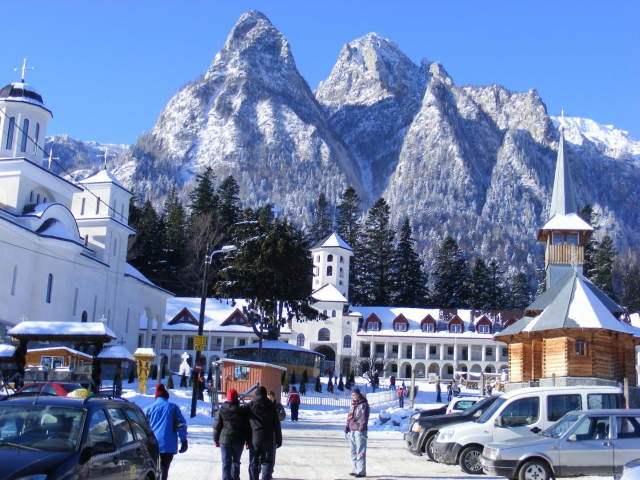Winter Holidays in Romania
The Epiphany on January 6th and John Baptist's Feast Day on January 7th mark the end of the winter holiday season.

România Internațional, 06.01.2014, 12:54
The Epiphany or Theophany, on January the 6th, commemorating the baptism of Jesus Christ in the Jordan River, and the John the Baptist’s Feast Day on January the 7th, mark the end of the religious holidays devoted to the Nativity of Jesus Christ, and the end of the winter holiday season. As they do every year, Romanians spent their holidays with their friends and family, at home or in various tourist resorts. According to the Federation of Tourism Employers, over 100 thousand people spent the New Year’s Eve in Romanian tourist resorts, a figure which is 15% higher than last year.
A similar increase was reported in terms of the money they spent on this occasion—around 21 million euros. Romanians generally preferred mountain resorts, followed by rural guesthouses and spa resorts. In the mountains, however, the warm weather, unusual for this time of the year, was hardly an advantage for winter sports fans, who found but few slopes open for skiing or sleighing. They did find alternative pastimes, such as paragliding or off-road bike riding. Rural guesthouses were also in high demand. This year they hosted tens of thousands of tourists, 10% more than the year before, as Romanians are beginning to appreciate more these quiet locations in the middle of nature, as well as authentic traditions and cuisine. Rural guesthouses were also popular among foreign tourists. Most of them came from neighboring countries like Hungary, the Republic of Moldova, Ukraine and Serbia, but tourists also came from as far as France, Israel and Britain. Also on the rise was the number of Romanians who chose foreign destinations for their winter holidays, primarily in Austria, Bulgaria, Greece and Turkey.
The tradition of outdoor New Year’s Eve parties in the big cities was also carried on, with the local authorities in Bucharest and other major Romanian cities organizing concerts, traditional music and dance shows and fireworks. And, while for most Romanians the winter holidays are over, there is a category of Christians for whom they are only beginning. Over one million Orthodox believers observing the Julian calendar, mainly Ukrainians, Russians, Armenians, Serbs and Romanians, have their holidays 13 days later than the majority of Christians, so they celebrate Christmas on January the 7th.






























